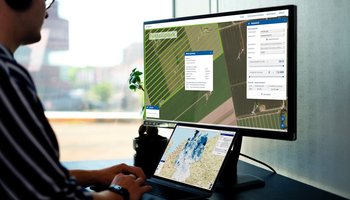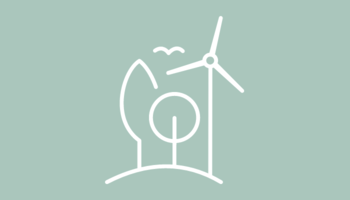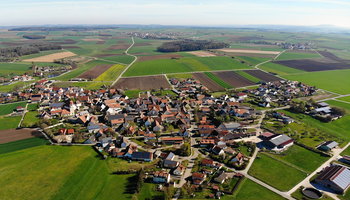A key factor for the success of the energy transition is that the public supports and accepts the expansion of renewable energies. However, doubts about nature and environmental compatibility are increasingly being used as arguments against the expansion of renewable energies. The aim of the interdisciplinary project is therefore the analysis of factors promoting the acceptance of the expansion of renewable energies in the context of nature and environmental compatibility.
The aim of this project is to reduce the conflict between nature conservation and environmental interests and the expansion of renewable energies. The key question is whether a nature and environmentally acceptable expansion can lead to a higher level of acceptance of renewable energies. To answer this, factors promoting the acceptance of renewable energies in the context of nature, landscape and climate protection will be subjected to an interdisciplinary analysis and synergies between nature conservation and the utilisation of renewable energies presented. This will result in communication strategies for specific target groups and recommendations for action to increase the acceptance of an environmentally compatible expansion of renewable energies.
First an interdisciplinary analysis and evaluation of the current research status on the acceptance of the expansion of renewable energies by nature conservation interests will be carried out. The determinants for increasing acceptance will be combined in an integrated acceptance model (IAM).
In accordance with the theoretical base, the IAM will offer the possibility of validating the acceptance factors and assumptions on their interaction. This will take account of the regional differences and interest groups and the accompanying unequal weighting of acceptance factors and integrate this in the model. This includes differences in landscape contexts and the areas of value for nature conservation, economic, ecological and social factors and also the infrastructure make-up of each region. In addition, all renewable energy resources should be included, with the exception of offshore wind turbines.
In a further step the IAM will be discussed and validated. In order to record as broad a range of boundary conditions on the expansion of renewable energies as possible, regional stakeholders and interest groups from three federal states (Mecklenburg-Western Pomerania, Baden-Württemberg and Schleswig-Holstein) will be questioned in interviews. This will examine whether the IAM has recorded the experiences and regional differences well enough. Based on this information, a questionnaire will be set up to consult local inhabitants and, based on the results, an individual weighting of acceptance factors carried out for the different groups of the public and regions.
Finally, based on the validated IAM, the key acceptance factors will be determined and the different groups of stakeholders addressed individually. A brochure will be produced for this by a communication design agency, which will be addressed to the public and should lead to an increase in the acceptance of the expansion of renewable energy. To validate the brochure and therefore investigate its effectiveness, excerpts from it will be tested in an Internet questionnaire and it will also be discussed in an interdisciplinary workshop. The dependent variable here is the cognitive and emotional attitudinal dimension. The brochure will be updated and revised using the results of the online questionnaire and by incorporating the comments from the workshop, and will then provide recommendations for action to encourage acceptance and an aid to discussion, with regional demonstration examples.
Brochure „Naturverträgliche Energiewende – Akzeptanz und Erfahrungen vor Ort“
Akzeptanzfördernde Faktoren erneuerbarer Energien (BfN-Skript 551)
Publications by Prof Dr Gundual Hübner (in English and German)

Akzeptanzfördernde Faktoren erneuerbarer Energien
BfN-Skripten 551 (2020)
Martin-Luther-Universität Halle-Wittenberg
Psychology Department
06099 Halle (Saale)
Prof. Dr. Gundula Hübner
Tel.: +49 345 55 24 372
Gundula.huebner(at)psych.uni-halle.de
Anina Wigand (M.Sc)
Anina.wigand(at)psych.uni-halle.de
Institute for Ecological Economy Research (IÖW)
Potsdamer Str. 105, 10785 Berlin
Dr. Astrid Aretz
Tel.: +49 30 884594-17
Astrid.Aretz(at)ioew.de
Institut für nachhaltige Energie- und Ressourcennutzung (INER)
Hochwildpfad 47, 14169 Berlin
Dr. Dörte Ohlhorst
Tel.: +49 30 12064748
ohlhorst(at)i-ner.de
Institute for Advanced Sustainability Studies e.V. (IASS)
Berliner Str. 130, 14467 Potsdam
Prof. Dr. Patrizia Nanz
Tel.: +49 331 28822-467
Patrizia.nanz(at)iass-potsdam.de
Bosch & Partner GmbH
Kantstr. 63a, 10627 Berlin
Dr. Wolfgang Peters
Tel.: +49 30 6098844-60
w.peters(at)boschpartner.de
adlerschmidt GmbH
Bülowstr. 66, 10783 Berlin
Florian Adler
Tel.: +49 30 860 007-0
fa(at)adlerschmidt.de
Federal Agency for Nature Conservation (BfN)
Konstantinstr. 110
53179 Bonn
FG I 2.2 Nature Conservation, Society and Social Issues
Dr. Ulrike Hoffmann
15.02.2023
Weiter

03.02.2022
Weiter

29.10.2021
Weiter
